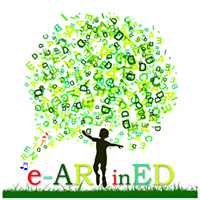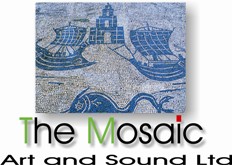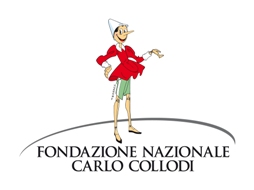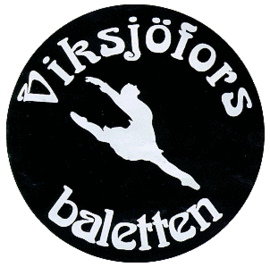eARTinED: ARTinED online: A new approach to education using the arts

Contract Information
Programme: EACEA PROGRAMMES Programme Acronym: EACEA: ERASMUS+ Contract Type: NO CONTRACT TYPE Start Date: 2015-09-01 End Date: 2018-08-31 Contract No: 2015-1-SE01-KA201-012267 Role for TUC/MUSIC: Contractor Funding for TUC/MUSIC: 68124.0 Euros Principal Investigator for TUC/MUSIC: Stavros Christodoulakis
Project Information
Project Web Site
Project Description
The development of creative abilities is vital to survive. Teaching in a creative way is essential to make learning a process that all students can enjoy and benefit from. European education has a critical need to find a way to weave creativity within education settings. Teaching and learning by embedding the arts into school curriculum is the answer.
Needs to be addressed:
Gardner's multiple intelligence theory presents the arts as distinct modes of thinking that fall under the umbrella of intelligence. Four of the Gardner's intelligences are arts domains: verbal (literary arts), visual/spatial (visual arts), musical, and body/kinesthetic (dance/drama). School systems that rely on teaching primarily through the spoken and written word do not reach those students who struggle with curriculum and instruction based primarily on verbal proficiency, as they may have other kind of intelligence different from verbal and logic. Learning curricular subjects through multi-art forms give those students an opportunity to learn and explore their potential.
But the arts are not useful only to those who struggle with learning based on verbal proficiency, they are a precious resource for any kind of student. As more teachers use motivation and communication powers of the arts, reports of increased concentration, more cooperation, better comprehension, and greater self-esteem among students are increasing.
Significant arts involvement changes how children think and how they feel about learning. This is reflected in test scores and in vast quantities of survey, interview, observation and anecdotal evidence.
This is because arts integration creates a highly stimulating learning environment featuring arts materials, tools, and strategy to increase the possibilities for sensory inputs. In arts integration it is common for students to work in groups and to be out of their seats. For instance, drama and dance allow students to move and learn kinesthetically.Arts involve emotional intelligence, and brain changes are most extensive and powerful when emotion is part of learning. The chemicals of emotions modify synapses and modifications of synapses is the very root of learning. Furthermore, by offering innumerable opportunities for experiential, sensory learning that engages the emotions - essential to long-term memory – the arts become a tool to retain the curriculum’s learning contents. The arts are arguably the most important tool a teacher has to engage the emotions. Examples of using the arts to teach curricular subjects: teaching maths through sculpture, chemistry through dance, history with painting, science with music, geography with drama.
Project target groups:
Ultimate beneficiaries are primary school children in Europe. The target groups also include primary school teachers, school authorities, curriculum experts. To face today’s challenges it is crucial for teachers to have educational tools that help them to work more collaboratively and more creatively. With the arts they develop deep thinking and become more open and flexible.
Teachers involved in art integration are more likely to participate in professional development and acquire a broader repertoire of teaching strategy. By using the arts within their daily teaching, they promote a more joyful, relaxed and stimulating learning environment. Furthermore, they provide their students with a legacy of transversal competences that will help them during their entire life.Project objectives:
e-ARTinED expands the research and the resources created in the ARTinED project 2011, also by providing a much awaited distance learning course. ARTinED was extremely successful, receiving praise and maximum score by the experts of the European Commission. The project activities were tested by a crowd of enthusiastic teachers who are waiting for updates and new resources. Exploitation of the project was very effective indeed. A result is visible in Sweden where the leader institution of the present application is currently working along with the Ministry of Education, regional and local authorities, on developing a school in Sweden based on the ARTinED methodology. The school would act as a catalyst for innovation for the entire country and would contribute to include new concepts in education.
E-ARTinED will organize the previous didactic materials in a systematic didactic set, expanding also on two new subjects: “Social inclusion through the arts” and “Exploring nature through the arts”. Collective piloting events will help to test and evaluate the new resources. E-ARTinED will create and deliver a 4-month online course for teachers across Europe from different and distant geographical areas, thus allowing teachers from any corner to experiment the project’s exciting, inspiring and effective methodology and practices. The ARTinED Community of Practice will also be created and will contribute in a substantial way to the project sustainabiility.
Project Publications
(7) Integrating Design Thinking, Digital Technologies and the Arts to Explore Peace, War and Social Justice Concepts with Young Children
Publication Authors: Hatzigianni M., Gregoriadis A., Moumoutzis N., Christoulakis M., Alexiou V.
Publication Info: Embedding STEAM in Early Childhood Education and Care 2021
Publication Type: Book Chapters(6) Renovating the Cultural Heritage of Traditional Shadow Theatre with eShadow - Design, Implementation, Evaluation and Use in Formal and Informal Learning
Publication Authors: Moumoutzis N., Christoulakis M., Christodoulakis S., Marinova Paneva D.
Publication Info: DiPP2018 International Conference on Digital Presentation and Preservation of Cultural and Scientific Heritage. Vol. 8, Sofia, Bulgaria: Institute of Mathematics and Informatics – BAS 2018
Publication Type: Conference Publications(5) Supporting learning communities and communities of practice with Coursevo
Publication Authors: Pappas N., Arapi P., Moumoutzis N., Christodoulakis S.
Publication Info: IEEE Global Engineering Education Conference (EDUCON), Athens, Greece, 25-28 April 2017
Publication Type: Conference Publications(4) Using new media arts to enable project-based learning in technological education
Publication Authors: Moumoutzis N., Christoulakis M., Pitsiladis A., Maragoudakis I., Christodoulakis S., Menioudakis M., Koutsabesi J., Tzoganidis M.
Publication Info: IEEE Global Engineering Education Conference (EDUCON), Athens, Greece, 25-28 April 2017
Publication Type: Conference Publications(3) Employing Theatrical Interactions and Audience Engagement to Enable Creative Learning Experiences in Formal and Informal Learning
Publication Authors: Moumoutzis N., Gioldasis N., Stylianakis G., Anestis G., Christoulakis M., Christodoulakis S.
Publication Info: 2017 International Conference on Interactive Mobile Communication Technologies and Learning (IMCL), Thessaloniki, Greece, 30 Nov. - 1 Dec. 2017
Publication Type: Conference Publications(2) Playful creation of digital stories with eShadow
Publication Authors: Moraiti A., Moumoutzis N., Christoulakis M., Pitsiladis A., Stylianakis G., Sifakis G., Maragoudakis I., Christodoulakis S.
Publication Info: 11th International Workshop on Semantic and Social Media Adaptation and Personalization (SMAP), Thessaloniki, Greece, 20-21 Oct. 2016
Publication Type: Workshop Proceedings(1) ViSTPro: A platform for visualization of spatiotemporal processes on Google Earth
Publication Authors: Sifakis G., Christodoulakis S., Moumoutzis N.
Publication Info: 11th International Workshop on Semantic and Social Media Adaptation and Personalization (SMAP), Thessaloniki, Greece, 20-21 Oct. 2016
Publication Type: Workshop Proceedings
Project Downloads
Project Consortium

MOSAIC
Mosaic Art and SoundUK 
FNCC
Fondazione Nazionale Carlo CollodiΙΤ 
Viksjöforsbaletten
ViksjöforsbalettenSE 
IYMF
International Yehudi Menuhin FoundationBE



